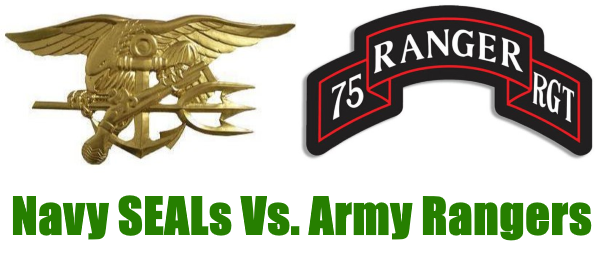
If you ever come upon a discussion about the various US Special Operations groups, you’ll inevitably get sucked in to drawing comparisons between them.
Which one’s tougher?
Which one has the hardest training?
Who is the best?
One comparison I see pretty often is that of Navy SEALs vs. Army Rangers.
These 2 units have very different selection processes, training, and even mission sets.
The purpose of this article is not to “pick a winner.”
Rather, we want to give you the best information possible on each unit to help you figure out which one is right for you.
Quick Comparison of Navy SEALS vs. Army Rangers
| Navy SEALs | Army Rangers | |
|---|---|---|
| Summary | Navy SEALs are the primary special operations force and a component of the Naval Special Warfare Command. | Army Rangers are graduates of the prestigious U.S. Army Ranger School. The elite airborne light infantry combat formation acts within the Army Special Operations Command (USASOC). |
| Founded | 1962 | 1943 |
| Motto | “The Only Easy Day Was Yesterday” | “Rangers Lead the Way” |
| Average Age | 30 – 40 | 24 |
| Logo / Insignia | 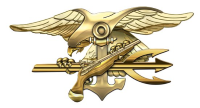 |  |
| Headquarters | Naval Amphibious Base Coronado Naval Amphibious Base Little Creek | Fort Moore, Georgia Fort Lewis, Washington Hunter Army Airfield, Georgia |
| Total Size | 2,450 | Close to 3,600 |
| Primary Mission | – Special Operations – Direct Action – Counter-Terrorism – Special Reconnaissance – Unconventional Warfare – Hostage Rescue – Foreign Internal Defense – Counter-Proliferation – Counter Narcotic Operations | – Light Infantry – Special Operations – Direct Action – Special Reconnaissance |
| Requirements | – US Citizen – Meet specific eyesight requirements – Meet the minimum ASVAB score – 28 years of age or younger – Pass a physical examination required for divers | – US Citizen – Physical training score of 240+ – Qualify / volunteer for Airborne training – In good moral character – Eligible for a security clearance |
| Are Women Allowed? | Yes | Yes |
What Are Navy SEALs?
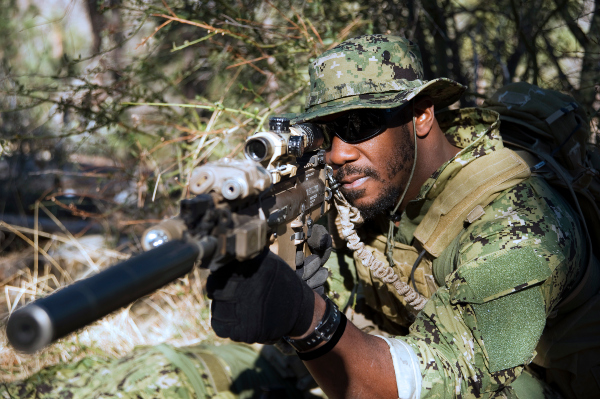
The United States Navy Sea, Air, and Land teams are traditionally shortened to “Navy SEALs.”
SEALs are one of the most prestigious and recognizable names within the U.S. Armed Forces.
The legendary special operations force has origins that date back six decades.
Navy SEALs are the primary special operations force and component of the Naval Special Warfare Command.
SEALs are delegated with conducting small-unit special operation missions in maritime, jungle, mountainous, arctic, desert, and urban environments.
Often, SEALs deal with capturing or eliminating high-level targets.
They also are integral in gathering intelligence behind enemy lines to assist other levels of the U.S. government and Armed Forces.
There are currently only 2,450 Navy SEALs, which represents less than one percent of the U.S. Navy.
Therefore, it is extremely competitive and challenging to get accepted into the prestigious unit.
The elite force is currently open to female enrollees. So far, only one woman has completed the Naval Special Warfare training pipeline and qualified to become a combatant-craft crewman. However, none have yet met the qualifications to become a fully-fledged SEAL as of June 2023.
Many recruits join the U.S. Navy with ambitions to eventually join the special ops unit.
Additionally, the CIA regularly recruits members of the Navy SEALs for its highly secretive Special Operations Group (SOG).
The headquarters for the Navy SEALs exists at Naval Amphibious Base Coronado and Naval Amphibious Base Little Creek.
The United States officially established the special forces operation in 1962, although it has roots that date to World War II.
What are Army Rangers?
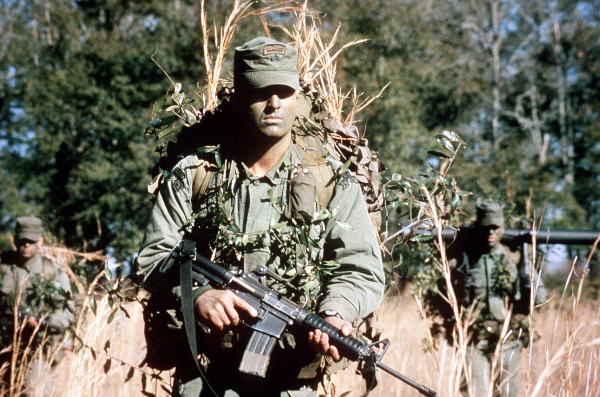
The United States Army Rangers serve as an elite division of the traditional active-duty branch.
Army Rangers are graduates of the U.S. Army Ranger School and serve in the 75th Ranger Regiment.
The prestigious Army Ranger School is very difficult to complete as it has several intense requirements, including completing parachuting training.
The Rangers date back to the 17th century and helped swing the tide during the American Revolution.
However, they were not officially recognized by the U.S. Armed Forces until 1943.
The 75th Ranger Regiment operates under the rule of the United States Army Special Operations Command (USASOC).
Rangers provide an elite airborne light infantry combat formation for the traditional Army.
All in all, the 75th Ranger Regiment is organized into four geographically based battalions, along with an intelligence battallion.
Army Rangers have seen action in major conflicts including Korea, Vietnam, Iraq, and Afghanistan.
Rangers were also instrumental in assisting with the conflicts in Grenada and Panama.
The Ranger Training Brigade (RTB) has headquarters at Fort Benning in Georgia.
Army Ranger headquarters are also at Fort Lewis (Washington) and Hunter Army Airfield (Georgia).
Female soldiers first became eligible to join the Army Rangers as recently as 2015. Since that time, over 100 women have graduated and earned the Ranger tab.
What do Navy SEALs do?
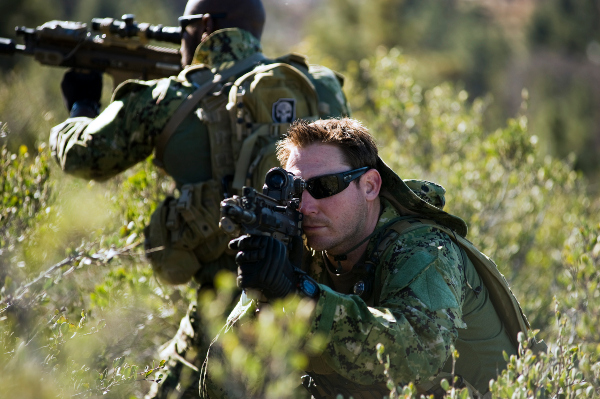
Navy SEALs are the maritime version of US Special Forces, similar in some ways to Green Berets and even Delta Force.
The special operations force (SOF) has many different roles:
- Special Operations
- Direct Action
- Counter-Terrorism
- Special Reconnaissance
- Unconventional Warfare
- Hostage Rescue
- Foreign Internal Defense
- Counter-Proliferation
- Counter Narcotic Operations
Navy SEALs became extremely noteworthy during the controversial war in Vietnam.
They were instrumental in evading remote islands and difficult terrain to pave the way for other units.
Navy SEALs traditionally operate in small units that allow them to provide special operations including reconnaissance.
SEALs have evolved to become counter-terrorism operatives following September 11.
Prior to that, Navy SEALs also influenced the outcome of conflicts that did not turn into wars, such as the situations in Grenada, Panama, and Somalia.
Recently, they have been courageous and lauded during the long-lasting wars in Iraq and Afghanistan.
A specialized Navy SEAL unit called DEVGRU led the invasion and assassination of Osama bin Laden.
Navy SEALs utilize special teams like Underwater Demolition Teams (UDT) and “Leap Frogs” parachute teams.
What do Army Rangers do?
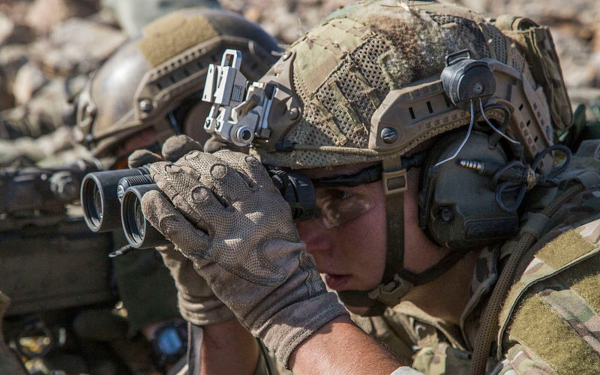
Army Rangers serve as an elite light infantry unit.
Therefore, it’s difficult to narrow down their list of duties but here are some of the primary responsibilities:
- Direct Action
- National and International Emergency Crisis Response
- Airfield Seizure
- Airborne & Air Assault Operations
- Special Reconnaissance
- Intelligence & Counter Intelligence
- Combat Search & Rescue
- Personnel Recovery & Hostage Rescue
- Joint Special Operations
- Counter-Terrorism
Rangers are similar to regular soldiers of the Army but with more specialized training.
Furthermore, Rangers feature small units and are extremely mobile if they are required for rapid deployment.
Army Rangers have assisted the country since World War II and have become more important following the conclusion of the Vietnam War.
The 75th Ranger Regiment consists of four battalions that combine special operations with elite airborne infantry.
Since most of the units in the U.S. Army provide support on the ground, Rangers are incredibly invaluable.
The regiment is flexible and has the ability to carry out a variety of missions and orders.
The Ranger Creed is very important to the responsibilities and expectations of every soldier.
Rangers have participated in several operations throughout modern history.
Operation Eagle Claw and Operation Urgent Fury are two of its most historic missions.
Moreover, three Ranger battalions participated in the invasion of Panama.
Rangers were also deployed during the Persian Gulf War, Operation Iraqi Freedom, and the War in Afghanistan.
Navy SEAL Selection Process
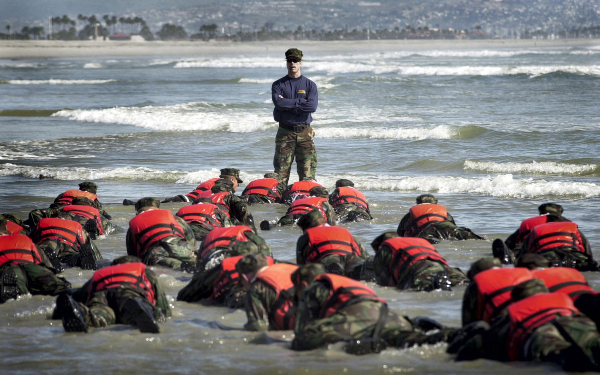
The Navy SEAL selection process is extremely in-depth.
For example, the average recruit of the U.S. Navy Sea, Air, and Land Teams (SEALs) spends over a year in training.
Once you graduate from the training program you receive an official rating as a Special Warfare Operator.
Every Navy SEAL is required to attend and graduate from the 24-week “A” School based on their rating.
The “A” School is known as the Basic Underwater Demolition/SEAL (BUD/S) School.
Furthermore, they need to complete the basic parachutist course as well as the SEAL Qualification Training program.
New recruits must meet the basic requirements of the Navy SEALs:
- Citizens of the United States.
- Between the ages of 18-29.
- A minimum score of 220 on ASVAB.
- Vision of 20/70 and correctable to 20/25.
- Complete the SEAL Physical Screening Test.
Also, keep in mind that the U.S. Navy looks into your background and personal conduct.
They are seeking candidates with no recent history of alcohol or drug abuse.
Applicants must have “good moral character” that is free of criminal convictions and civil citations.
Lastly, new recruits can only receive assignments to BUD/S by completing the SEAL Physical Screening Test (PST).
Naval Special Warfare Preparatory School
The Naval Special Warfare Preparatory School lasts five weeks.
The introduction to Navy SEAL training takes place in Illinois.
Prospective SEALs are introduced to the physical fitness standards required to join the elite unit.
After completing two types of fitness screenings, the recruit may progress to Basic Underwater Demolition/SEAL (BUD/S) Training orientation, which is two weeks long.
Basic Underwater Demolition/SEAL (BUD/S) Training
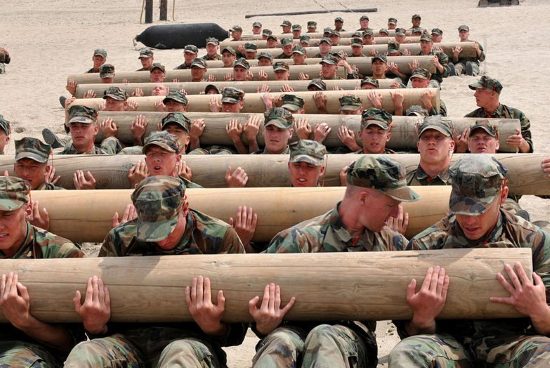
Basic Underwater Demolition/SEAL (BUD/S) Training takes 24 weeks to complete.
It is designed to test your physical stamina along with your mental fortitude.
You’ll also learn critical leadership skills needed to survive as a Navy SEAL.
BUD/S Training is divided into four sections:
- BUD/S Orientation (2 Weeks)
- Phase 1: Physical Conditions (7 Weeks)
- Phase 2: Combat Diving (7 Weeks)
- Final Phase 3: Land Warfare (7 Weeks)
You can learn more about the specifics of Navy SEAL BUD/S Training by reading this article.
Navy SEAL Parachute Jump School
The Navy SEAL Parachute Jump School lasts three weeks in San Diego, California.
The accelerated program only lasts three weeks but you learn so much during the course.
Candidates must pass through a series of jump progressions to complete the course.
SEAL Qualification Training (SQT)
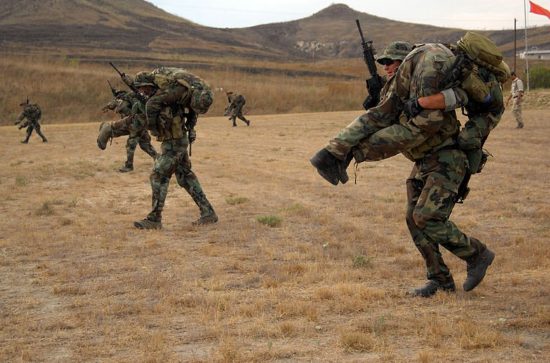
Navy SEAL Qualification Training (SQT) adds another 26 weeks to the intensive training schedule.
It is intended to take the recruit from the basic elementary level of Naval Special Warfare to a more advanced degree of tactical training.
As a result, Navy SQT provides students with the core tactical knowledge to stand out in a SEAL unit.
Navy SQT provides advanced weapons training, close-quarters combat, land navigation, demolitions, and other specialized training.
After finishing SQT, new recruits receive their first assignment in California or Virginia.
New SEALs go through TRP and other specialized training while awaiting their first deployment.
Depending on their specialty, new SEALs may take the SEAL Sniper Course or Advanced Special Operations (MSO) training, among many other offerings.
Army Ranger Selection Process
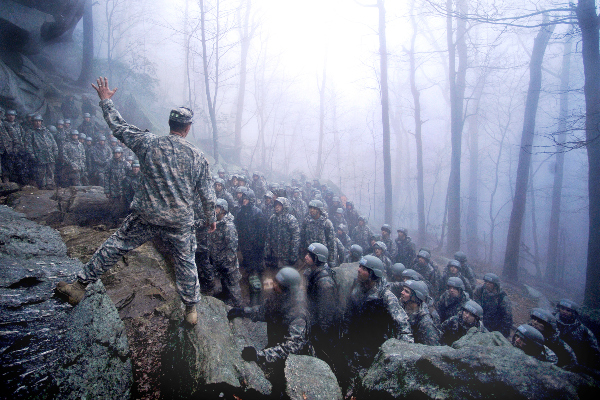
Rangers have a comparable selection process that takes several months or years to complete.
You can expect to get challenged in every capacity, so make sure you know what you are getting into before you enlist.
The Ranger Assessment and Selection (RASP) is a demanding, 8-week course.
The purpose of RASP is to test the physical and mental strength of every new recruit under extreme conditions.
You need to pass RASP to officially join the 75th Ranger Regiment.
Here are the basic requirements for becoming an Army Ranger:
- Currently on active duty.
- General Technical: 105 or higher on the ASVAB.
- Qualify and volunteer for airborne training.
- Complete RASP 1.
- No pending UCMJ action.
- Capable of maintaining Secret military clearance.
Once recruits complete Basic Combat Training (BCT) and Advanced Individual Training (AIT) they may progress to RASP.
RASP has a couple of basic expectations: A) You need to pass a health screening and B) pass the RASP entry fitness test.
Army RASP Phase 1: Testing
The first phase of RASP includes a lot of testing.
Students are assessed based on their physical fitness levels.
Additionally, the military program studies your character and leadership ability.
Some of the highlights of phase one include:
- Force Ruck March and Run
- Land Navigation (Day and Night)
- First Responder Test
Army RASP Phase 2: Ranger Skills Training
After passing all the mandatory screenings and tests, students progress to stage two of training.
Candidates learn the skills and maneuvers that prepare them for the lifestyle of an Army Ranger.
Students learn the principles of mountaineering, testing their skills on a 200-foot drop at night.
Phase 2 also involves combat training, including direct action combat, airfield seizure, and personnel recovery.
Other highlights of the second phase of RASP training include:
- Marksmanship and Tactics
- Basic Regimental Marksmanship
- Advanced Regimental Marksmanship
- Explosives and Breaching
Army RASP Phase 3: Watercraft Skills Training
This phase tests the hopeful rangers how to navigate on water using stealth. This training is conducted at Eglin AFB, in the Florida Panhandle.
Other tests include:
- Waterborne Operations
- Mission Planning
- Mission Execution
- Leadership
- Endurance
Upon successful completion of RASP, recruits receive a tan beret for graduating from the preparation course.
Officers need to complete additional training before graduating from the program.
Army Ranger School
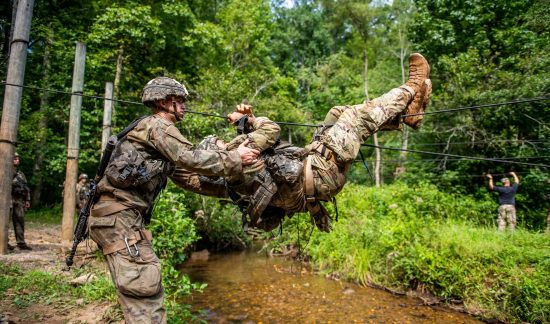
All members of the 75th Ranger Regiment are expected to attend and complete Ranger School.
Rangers have the option of entering the school before or after their selection to the regiment.
Army Ranger School includes the prestigious Airborne School which is considered the highlight of Ranger training.
There are 3 distinct phases of Ranger School:
- Crawl Phase (20 Days)
- Walk Phase (21 Days)
- Run Phase (20 days)
You can learn more about the expectations and training exercises through the official website.
Conclusion
The choice between Navy SEALs and Army Rangers might be an easy one for some and a difficult choice for others.
Either way, whichever one you pick will be a very difficult uphill battle to attain the title of ‘SEAL’ or ‘Ranger’.
Navy SEALs are legendary based on their reputation and the severity of the missions they execute.
Meanwhile, Army Rangers have to complete Ranger School, which includes the notorious Parachute/Jump School.
Both elite units provide an outstanding career in the military where you’ll get to see the world and become involved in highly secretive and important operations.
In the end, the choice is yours.


